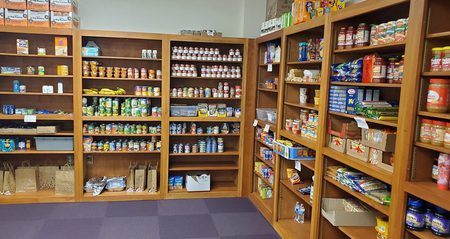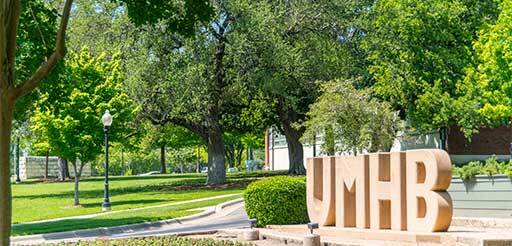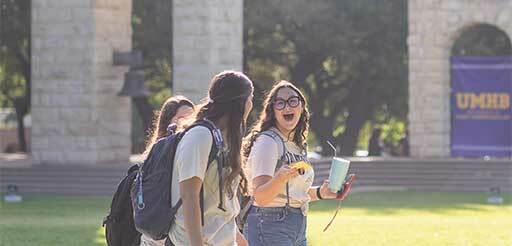Campbell Berglund
COMM 3365 01
A Little Room Makes a Big Impact for Students at the University of Mary Hardin-Baylor
The University of Mary Hardin-Baylor has an important resource for their students that are suffering with food insecurity. The on–campus food pantry known as The Source, located on the second floor of Maybee Student Success Center by the Center for Academic Excellence, may not be large, but it helps prevent many students from going hungry.
Dr. Terry Fox, founder of The Source, saw an article about the opening of Baylor University’s on-campus food pantry in spring of 2018 and it made him ask the question, ‘How many of the students from UMHB are suffering from food insecurity?’
After sending out a survey to students across campus, Fox discovered that about 40% of the university’s students fell under the definition of being food insecure. This became a concern because “if a student is hungry, they aren’t going to be paying attention in class,” Fox said.
With an idea starting to take root, Dr. Brandon Skaggs, the Vice President of Student Life at UMHB, offered his assistance. “It’s great to see our campus engaging in giving back,” Skaggs said.
Unfortunately, food insecurity is an epidemic on campus and in the surrounding community. "Right now, we are serving about 600 a week,” Bekah Prince, Director of Operations at the local food pantry Helping Hands Ministry, said.
This means that at least 600 people a week are suffering from food insecurity in Bell County. Of course, there are more people who are unable to access assistance from Helping Hands, or they feel the stigma of food insecurity and don’t come forward for help.
Madeline Whitmore, a doctoral candidate who serves as a graduate assistant for The Store – Baylor University’s on-campus food pantry – said, “Public assistance has been demonized.” Society has come to believe that people who are food insecure and need government assistance are “lazy and aren’t pulling themselves up by their bootstraps,” she said.
Whitmore says that society has put the blame on the individual when in reality, it’s the result of a systemic failure. This is the reason why she assumes that such a stigma exists.
Prince says that this systemic failure is a cyclical pattern that keeps people in poverty. She explained that, to apply for government assistance, you go through a long process of phone calls and paper applications, but if you miss a single step, you are required to start from the beginning.
For homeless people, this can be difficult because they don’t have regular access to a phone where they can take said calls. Due to this obstacle, people who are homeless and have the most need for these programs are the least likely to receive their help.
People in these kinds of situations aren’t being held back from receiving help by a stigma, it’s the systemic failure that Whitmore talks about.
As for college students, “people think that being poor and being hungry in college is a rite of passage, but that’s actually food insecurity,” Witmore said.
This stigma not only affects students emotionally and physically, but it also influences their overall mental and intellectual well-being. Michael Burns, the Dean of Students at UMHB said, “if you’re worrying about where your next meal is coming from, I know that it’s very difficult to focus on schoolwork, theoretical thinking, and concepts.”
To remove the stigma, Fox created a check-in system for The Source that can gather student data while maintaining anonymity. Rather than gathering the student’s name, The Source requests them to write down their school ID number, the date, and the time to make them feel as though their privacy has been sustained.
Once the student has checked in, they are free to grab up to 12 food items and three personal hygiene items from The Source at a time. These numbers were decided on to ensure the student is fed and to maintain stock. This may not feel like enough for an entire week, but students are able to visit The Source multiple times a week if they need.
For people who are witnessing a friend or another student going through food insecurity, Burns says that directing them to The Source or contacting Burns himself are the best ways to provide assistance.
Food insecurity is not something that college students nor people in the community should suffer through alone. Prince said, “Just as our city needs a power grid that delivers electricity to every neighborhood, East Bell County needs a grid that connects every community to enough healthy food.”




